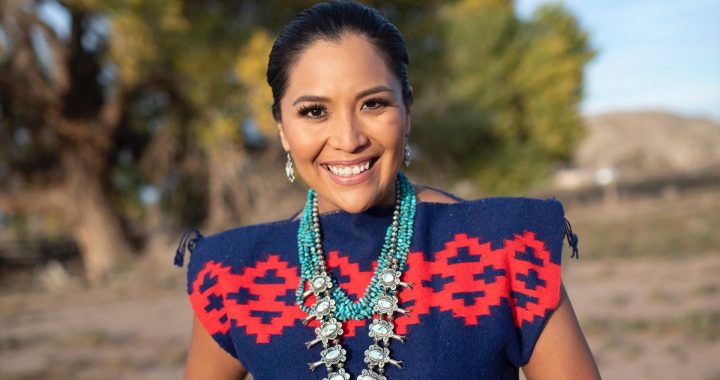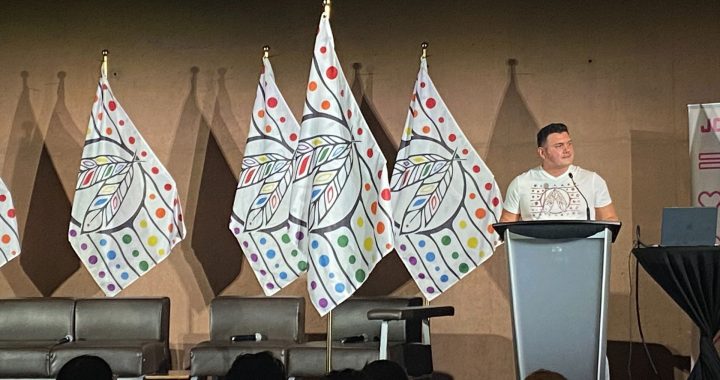Jennifer Constant says she joined the Correctional Service of Canada (CSC) to work her way into the Aboriginal Initiatives Department.
Instead, the guard from Deh Gah Gotie Dene Band in the Northwest Territories found her years at CSC “gruelling.”
Her experience, along with those of fellow plaintiff Jennifer Sanderson, are laid out in a 19-page statement of claim against CSC.
“Ms. Constant witnessed, experienced and endured from CSC management and staff racism, discrimination, and verbal and abusive behaviors that were malicious, vindictive and willful,” says the statement filed in federal court in Vancouver.
According to the claim, Constant worked for CSC from August 16, 2011 until April 20, 2019 at the Edmonton Institution for men, a maximum security facility.
“It’s was so frustrating not being listened to because they think we are stupid,” Constant says. “I am now speaking up for those people too afraid to speak up. It’s overwhelming you feel like you’re fighting with staff on a regular basis it’s hard doing your job and bringing it up with supervisors.
“They themselves are not helping the situation. Management saying we are all stupid anyway and to have a manager saying that in from of people is head shaking its happening from top to bottom.”
In her claim, Constant alleges she was “discriminated against in terms of shifts, posted to dangerous assignments more often than her non-racialized colleagues, and denied access to safety equipment,” the statement says. “When Ms. Constant reported these serious issues to CSC management, she was retaliated against and the wrongdoing continued.
“Ms. Constant also witnessed racism and targeting of Indigenous inmates and outsiders, including Elders in the correctional facilities who were present to provide support and care to inmates. For example, there were many times the Elders would be standing outside in -30C weather after a sweat lodge ceremony, drenched in sweat. The Aboriginal Department and inmates were always the last to be called for programs and almost always ended after the 4:00 pm workday. When
Aboriginal programs were running with no one else running a program, then it was “fkn Indians always get special privileges” and “must be nice to be Indian to always get programming,” the claims says.
Constant started searching for others who may have a similar story.
Through a mutual friend she heard about Jennifer Sanderson.
“I wanted to find out if her story was similar to mine,” Constant says. “I knew I wasn’t the only one and I reached out to her to find out her story.”
Constant found out that Sanderson also had high hopes when she joined the CSC in 2009.
Sanderson, a member of Wahpeton Dakota Nation in Saskatchewan resigned from her position as a correctional guard at the Saskatchewan Federal Penitentiary in Prince Albert, Sask., in 2017.
She had worked there for nine years, but left because of an alleged workplace bully that she says tormented her for years.
“When it was going on it was just one person that was targeting me, some of the phrases and wording used were blatantly and there was no holding back,” Sanderson says.
She added that she had anxiety anytime the co-worker approached her.
“Whenever he would begin to approach me, it was every time it was racial and comments like how come your not a drunk? You work in a place like this how did you manage not to end up behind bars? “
According to the statement of claim, Sanderson was also taunted by fellow guards at the prison.
“In 2016, a group of officers shouted to Ms. Sanderson to come into the main area. One officer said to Jenn: “It’s shirtless Sunday”. Her superior CS2 responded: “No, it’s Residential School Sunday at the prison today!” according to the claim. “In 2017, while she was pregnant, her superior CS2 intruded into her personal space and asked “Will the baby come out pow wow dancing?” the claim alleges.
None of the statements have been tested in court.
Sanderson says she filed a complaint with her supervisor but feels it wasn’t dealt with sufficiently.
“We’ll have a talk with him, we will talk with him over a whiskey I will talk with him and I got no support no employee assistance programming no mental health support,” she says of the supervisor.
Sanderson made the decision to take the next step for her own well being.
“I handed in my resignation. I put in my letter, I took my gear and I handed it off to the people in charge of that,” she says. “And the guy looked at me, a nice person you know and always so kind to me, he’s like ‘What are you doing?’ I couldn’t get my words out.”
After she resigned an investigation did take place but not much came of it, she says.
“The warden opened up the investigation immediately after I resigned and that investigation took almost a whole year. I wasn’t valued and my word wasn’t taken into consideration. Two weeks of unpaid leave that’s accountability? He’s still doing the same things.”
According to the claim which has not been certified, Sanderson and Constant say that they experienced, among other things; explicit and demeaning comments made about their race, nationality or ethnic origin, religion and or colour; implicit and explicit comments dismissing their ability to carry out their duties because of their race, and that non-racialized members of equivalent rank, experience received greater accommodation on sick leave, vacation requests, shift changes; transfer requests and non-racialized members of equivalent rank/experience assigned to more complex, high-profile files and tasks, receiving better career training, education, counselling and mentorship, receiving more positive performance reviews, and being more likely to be considered for promotion.
The claim adds that both have suffered post-traumatic stress disorder, physical, psychological and/or emotional harm or distress, diminished self-worth, depression, anxiety, suicidal ideation, attempted suicide and self blame.”
Sanderson wants compensation and changes within the Correctional Services Canada.
The CSC, which has 30 days to file a statement of defence, says it’s aware of the allegations but that it would be inappropriate to discuss because it’s before the court.
In an email to APTN, CSC said it’s working on a number of different programs.
“Racism and discrimination have absolutely no place in our society, inside or outside of CSC. CSC does not tolerate these behaviours and is committed to providing a workplace that is healthy, supportive and free of harassment and discrimination. Fostering a work environment that is safe and inclusive for everyone is our top priority,” says the statement. “We have taken concrete actions including the implementation of a national, comprehensive, and integrated workplace wellness and employee well-being strategy last fall and strengthening our process for identifying and addressing complaints pertaining to harassment, discrimination and violence.”
Their lawyer said this class action may take a while to resolve.
Constant says it was hard leaving her co-workers.
“It’s heartbreaking knowing nothing is being done about it.
Correction: The original story said that Jennifer Constant left CSC in 2016 – she left in 2019.









